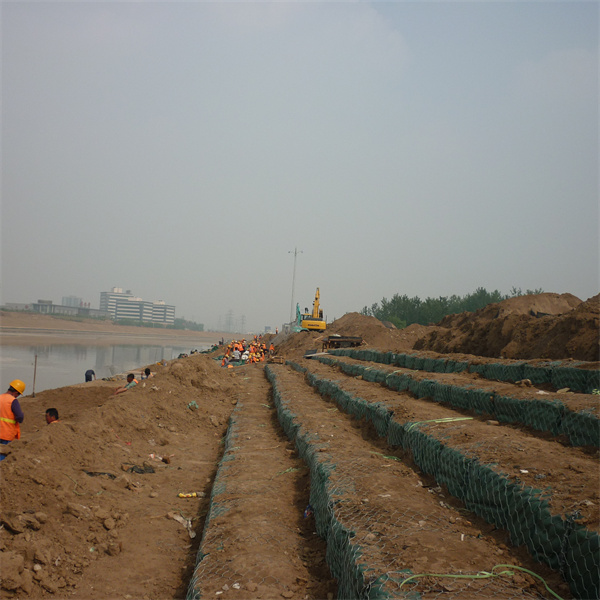Dec . 22, 2024 04:16 Back to list
gabion wall cost
Understanding Gabion Wall Costs
Gabion walls are a popular choice for landscaping, erosion control, and retaining structures due to their durability, flexibility, and aesthetically pleasing appearance. They are made from wire mesh baskets filled with stones, gravel, or even recycled materials, making them both functional and environmentally friendly. However, one of the main considerations for those looking to install gabion walls is the cost. In this article, we will explore the factors that influence gabion wall costs, average pricing, and the advantages of opting for this construction method.
Factors Influencing Gabion Wall Costs
1. Materials The cost of materials is one of the most significant factors influencing the overall expense of constructing a gabion wall. The wire mesh typically used is made from galvanized or PVC-coated steel, which adds to the cost due to its durability and resistance to corrosion. The choice of fill material can also impact the price; natural stones are often more affordable, while decorative rocks can be considerably pricier.
2. Wall Size and Height The dimensions of the gabion wall play a crucial role in determining the cost. Larger walls require more materials and labor and hence are more expensive. Additionally, taller walls may need a more complex design to ensure stability, which can also increase the overall cost.
3. Labor Costs Depending on the region, labor costs can vary significantly. Engaging skilled labor to ensure proper installation can add to the overall expense, but it is crucial for the wall's structural integrity. DIY projects can save on labor costs, but they require knowledge and effort.
4. Site Preparation Before constructing a gabion wall, the site often needs to be cleared and prepared. This can involve grading the land, removing debris, or even creating a foundation. The extent of site preparation needed will directly affect the overall costs.
5. Design Complexity While gabion walls can be straightforward structures, more complex designs, such as curved or tiered walls, will require additional planning, labor, and materials, increasing costs.
Average Pricing of Gabion Walls
On average, the cost of gabion walls ranges from $15 to $35 per square foot, including materials and labor. This estimate can vary based on the factors discussed above. For instance, a simple, low-height wall may cost closer to the lower end of the spectrum, while a tall, decorative wall with high-quality fill material may approach or even exceed the higher end.
gabion wall cost

For a more precise estimate, consider the total square footage required, select your preferred materials, and factor in local labor rates. It's also advisable to get multiple quotes from contractors to ensure competitive pricing.
Advantages of Gabion Walls
Despite the upfront costs, gabion walls offer several advantages that make them a worthwhile investment
1. Durability Gabion walls are highly durable and can withstand harsh weather conditions, making them a long-term solution for erosion control and landscaping.
2. Flexibility in Design The modular nature of gabion walls allows for various shapes and sizes, providing versatility in design to fit unique landscaping needs.
3. Sustainability When filled with recycled materials, gabion walls represent an eco-friendly choice in construction and landscaping.
4. Natural Aesthetics Gabion walls can blend seamlessly into natural landscapes, offering an attractive option compared to traditional concrete walls.
Conclusion
Gabion walls present a practical and aesthetically pleasing solution for various construction and landscaping needs. While initial costs can be significant, considering all factors—materials, labor, design complexity, and site preparation—can aid in achieving a budget that aligns with your project goals. By investing in a gabion wall, homeowners can enjoy long-lasting beauty and functionality, making it a valuable addition to any property.
-
Installation Tips for Gabion Wire Baskets in Erosion Control Projects
NewsJul.21,2025
-
High-Quality Gabion Basket Barriers for Retaining Wall Systems
NewsJul.21,2025
-
Gabion Welded Wire Mesh Applications in Flood Prevention Systems
NewsJul.21,2025
-
Designing Aesthetic Gabion Wall River Bank
NewsJul.21,2025
-
Creative Garden Gabion Baskets Designs Blending Form and Function
NewsJul.21,2025
-
Cost-Effective Gabion Mesh Panels
NewsJul.21,2025
-
Understanding Load-Bearing Capacity of Gabion Boxes
NewsJul.17,2025






